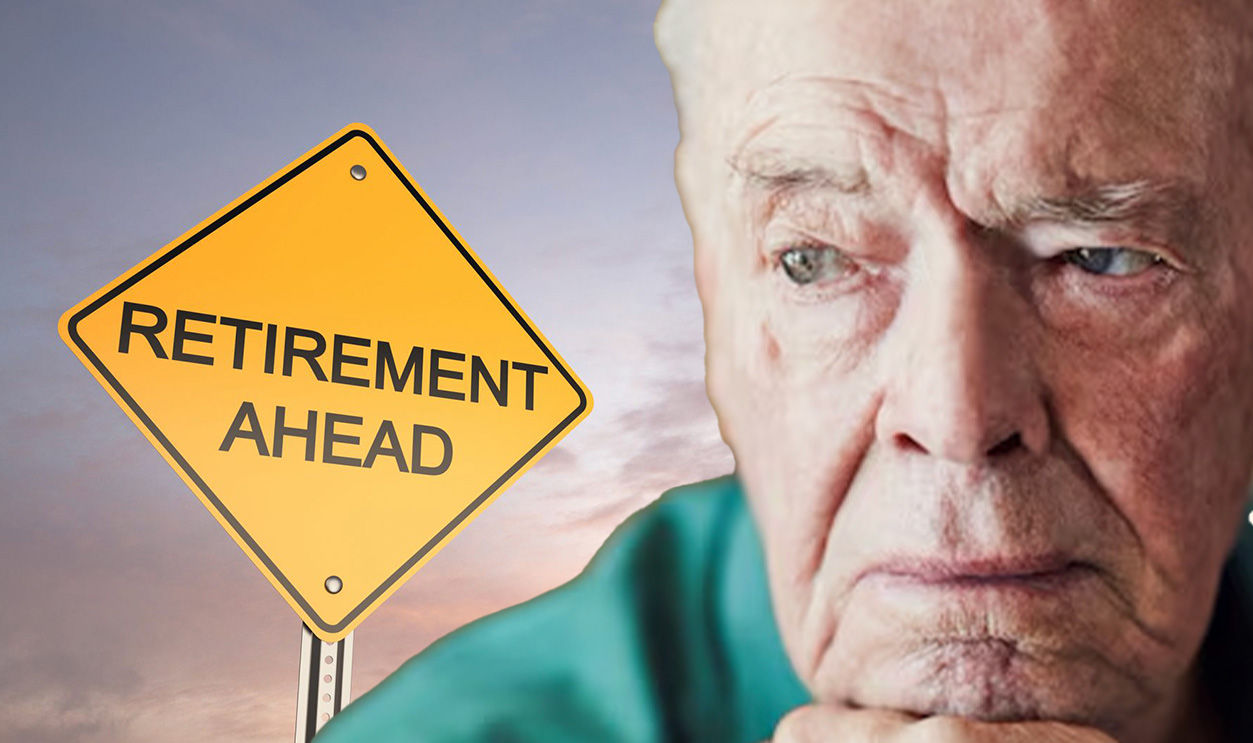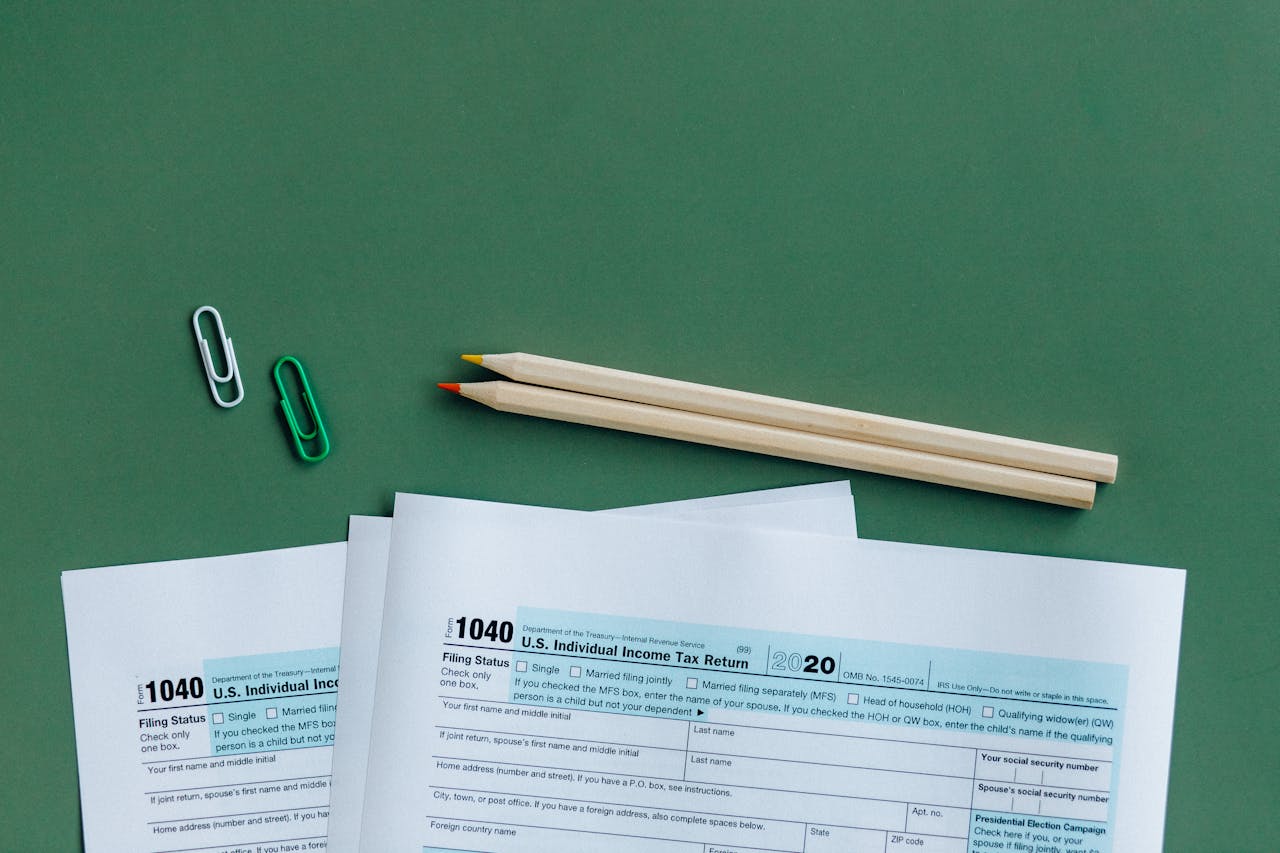You Might Want To Rethink Retiring Early
While everyone's goal should be to retire eventually, many people (depending on their financial situation) choose to retire early at 55 instead of 65, or 60 instead of 65. While this is great if your finances allow you to retire comfortably at that age, retiring early isn't for everyone. Here are a few downsides of retirement that nobody talks about.

A Reduction In Social Security Payments
Social Security payments can be greatly reduced if you take early retirement. For example, if you were to retire at 62 instead of 67, you may see as much as a 30% decrease in your Social Security payments. This will mean less money in your pocket overall, and money stress isn't what you need when you're retired.
The Solution:
Good retirement planning is the key here. Even if you plan to retire early, knowing that you're going to see that 30% reduction in Social Security may allow you to compensate for the financial hit by drawing from other revenue streams, like investment accounts.
Unexpected Productivity Pressure
You're retired, so shouldn't you be kicking back and enjoying life? Well, yes. But you may get messages, emails, or phone calls from your other retired friends who say, "Hey, Bob, we're going to place X or Y, want to join?" You may feel some unexpected pressure to be productive in your retirement. While it's important to keep up a regular routine and your physical fitness, don't feel the need to say "Yes!" to every friend's request now that you're retired.
The Solution:
Sure, it would be nice to go to all of these events with your friends, but you aren't getting any younger! Politely decline invitations to events you'd rather not go to. If friends insist, calmly explain that you didn't retire early to maintain the same level of activity that you had as a working person.
You May Feel Guilty About Not Working
If you retire early, there's a strong possibility that you'll feel guilty about not going into work, particularly if you're still friends with colleagues who are working. While this is understandable, try not to feel guilty. You've worked hard for your retirement—enjoy it!
The Solution:
One of the ways that you can stave off, or at least reduce the amount of guilt you may feel about not working, is to keep up with your former colleagues online or in-person and try to keep your mind and body active in retirement. Try to keep yourself busy and remember: you've earned your retirement through years of hard work.
An Increase In Living Expenses
Spending more time at home can mean an increase in living expenses that you might not have been expecting. You're eating more food, using more heat and electricity and consuming more water. Therefore, you may experience higher-than-normal bills for all of these expenses now that you're spending more time at home. Luckily, we've got a few tips for decreasing those expenses.
The Solution:
Whether you're 16 or 60, one of the best things you can do to avoid "lifestyle creep" from living at home is to set yourself a budget and not overspend. Try to stick to your budget and be mindful of how much electricity, heat, and water you're consuming on a day-to-day basis.
Your Family May Assume You're Available For Everything
Hey, now that you're retired, you'll be able to babysit the grandkids more often, right?! We know that you love your grandkids more than anything—you may indeed have taken early retirement to spend more time with them. But that doesn't necessarily mean that you're available every week or weekend. It's important to have some "you time" in your retirement.
The Solution:
If you find yourself in this situation, it's time to have a frank and honest conversation with your children and/or other family about your retirement and what you want it to look like. Make time for yourself and ensure that your family are respectful of your time.
Losing Your Sense Of Structure
When you were working, your work-life balance was pretty simple: you get up at a certain time, head into work at a certain time. But when you hit retirement, your daily routine can get all messed up. The loss of structure can be disorienting, but here's what you can do to get back that sense of routine.
The Solution:
Establish a new routine! One of the most important things you can do to gain back a lost sense of structure is to establish a new routine, whether that's a new exercise regimen of walking early in the morning and then again in the evening, or lifting weights, or some other activity that will offer structure into your day. That's the beauty of retirement: you are now your own boss.
Feeling Invisible
This might be especially true if you've tied your professional status to your sense of identity. An easy trap to fall into, but once you retire, you're no longer the head of your department. This can lead to feeling like you're invisible. It's not easy to get over, but here are some helpful things to do.
The Solution:
Have conversations with your spouse or family about your feelings. Learn what it is to be more than the title you once were at work. Once you've realized your importance and worth to others beyond the workplace, only then will you be able to carve out a personal identity that's not married to your job.
Unexpected Relationship Difficulties
Once you retire, you and your spouse will likely be spending more time together. This can lead to an exacerbation of marital problems that you either knew existed and haven't solved, or didn't realize existed, because you were both working full-time. You'll need to find ways to adjust, adapt, communicate, and overcome.
The Solution:
This is a tough one, because every situation is unique. But the most important thing is to communicate openly and effectively as problems arise. Even if you didn't realize there were problems, that's okay, it happens! The point is to tackle these issues together and find solutions together.
Overwhelmed By The To-Do List
This is particularly true if you live alone. While you were at work, your to-do list was relatively short, or taken care of, in large part, by others in the home. But when you're the only retiree in the household, you may suddenly realize how much you have to do to maintain the home. To help with this, we've suggested a few things.
The Solution:
Start by tackling one task at a time. Once you've completed that one, go onto the next one and before you know it, half the to-do list will be done before lunchtime! If you've got grandkids coming over, you could always enlist their help.
Sharp Decline In Mental Faculties
Notwithstanding illness, there are few things like a job to keep your brain and body active and busy. Whether the job you had was physically taxing or required a lot of brain power (or both), you may notice a sharp decline in your mental faculties as you get older. It's part of aging and can be tough to reconcile. But we suggest doing the following things to keep your brain tack-sharp.
The Solution:
One of the main things you can do to stave off a decline in your mental faculties is to get regular exercise. At least 30 minutes of exercise daily. You should also be reading and doing puzzles and other brain games to keep those neurons firing.
Forgotten Expertise & Skills
After you're out of the workforce for a while, you may forget things that you used to know by heart when you were working. Depending on your job, it may have become muscle memory, or if your brain was engaged more at your job, then you may notice your mental math skills degrading. This, too, is a normal part of aging, but here are some things you can do to ensure you don't forget those skills you've spent years honing.
The Solution:
Practice makes perfect (again). If you feel like you're losing a skill that you used to be able to do in your sleep, try practicing it again to get back up to the level you used to be at. Try re-learning the material you've forgotten, or re-learning the muscle memory that was once so ingrained.
Your Retirement Savings May Have To Last Longer
If you take early retirement, you're retirement savings will (by default) have to last longer. Combine this with the penalty you may pay for taking early withdrawals from any retirement-oriented bank account and it may not be worth it to take an early retirement if you don't have the money to sustain yourself. However, if you do take early retirement, follow these tips to make your money go farther into your retirement.
The Solution:
The primary solution to making your retirement savings last longer is to plan your retirement earlier. Go back to financial basics: budgeting. Create a budget based on how long you expect your retirement savings to last you for, and how much your living expenses are per year. Adjust your living expenses to account for the extra years you're now living as a "retiree".
You'll Need Health Insurance
Once you turn 65, your health needs will largely be covered under Medicaid. But, if you're retiring before 65, you'll lose your work-sponsored health insurance. This means you'll need to pay for private health insurance and as you get older, those insurance premium prices will skyrocket.
The Solution:
There's no easy solution for this, but to avoid paying overly exorbitant health insurance premiums, try your best to maintain a healthy, active lifestyle, including building a healthy immune system and eating a healthy diet.
You Don't Always Account For Taxes When You Withdraw From Retirement Accounts
Unfortunately, withdrawals that you make from certain types of retirement accounts aren't tax-free. They may have been tax-deferred up until now, but at the point of withdrawal, they're taxable. When you withdraw from your retirement account, make sure you've taken into consideration the taxes you'll have to pay on that "income".
The Solution:
If you've been saving into a 401K, these funds will be taxed upon withdrawal. But, if you've instead been saving into a Roth IRA or Roth 401K, then your income is tax-free upon withdrawal. You can convert a traditional 401K into a Roth account, but there are tax implications to doing so.
Inflation Bites Into Your Retirement Needs
Inflation might as well be the third certainty in life, after passing away and taxes. Unfortunately, many Americans don't account for inflation when they do their retirement planning. Meaning, because inflation hits all of your costs across the board, your retirement income doesn't go as far as it did last year, or the year before, when you were originally doing retirement planning. But, there's a solution.
The Solution:
When considering your investment portfolio, it's worth considering investing in equities as part of that portfolio. These aren't inflation-proof, but equity investments tend to experience continued growth over extended periods and have a higher rate of return than more traditional investments.
You May Feel Guilty About Spending Your Hard-Earned Money
We get it: You want to leave a nice springboard for your children and grandchildren, so they don't have to deal with financial insecurity once you're no longer around. This can lead to a fear of spending your hard-earned retirement income on vacations or a retirement treat for yourself, like a new car or something for your home.
The Solution:
While understandable, it's important that you recognize that your happiness in the present matters, too. While leaving your kids and grandchildren with a nice cushion from which to springboard after you're gone is great, your life after retirement shouldn't be lived in misery in service of their futures—nobody wants that, least of all those who love you most.
Moving Into Your Dream Home May Not Be All It's Cracked Up To Be
Many retirees get the sudden urge to up and move to somewhere new when they retire. Maybe they're downsizing as they can no longer afford the big home, or want to cash in on their property (that they've paid off) and buy something smaller. As tempting as this is, moving far away from everyone you've become close with, friends and family, might not be ideal as you age. Moving is both strenuous and stressful.
The Solution:
Explore your locale first, before you decide to move away. It may be that the perfect, smaller home may be waiting in the wings and probably much cheaper than wherever you were hoping to move to.
Keeping Up With Your Friends May Be Difficult
This may be because you're no longer a part of the "workplace" crew, but it's definitely harder to keep up with your friends when you retire. Maybe your schedules no longer seem to match up, no matter how hard you try. While this can be demoralizing and make you feel isolated, it's important to try and do something to maintain a circle of friends.
The Solution:
This may mean creating a new friendship group in addition to the one you have with your previous work colleagues. Try new social gatherings on for size, you may be surprised at the new friends you'll make now that you're one of those "retired" people.
What Are Your Options If You Can't Afford To Retire Early?
But what if, at the end of it all, you can't afford to retire? That's an unfortunate reality that so many Americans face. Sometimes, at the end of the day, the dollars and cents just don't add up to retirement. In that case, you may be forced to keep working. While this can feel like a real body-blow, it's important to keep in mind that you do have options.
Work Less Hours
Even if you are unable to re-enter your old workforce, if you just need a couple of extra hundred dollars a month to maintain your lifestyle, try working a part-time job that will give you what you need.
Work A Job You Love
If you've spent the last several decades working a job you didn't like, then semi-retirement might be an option to explore a new career path! Think about a job you'd love to do and see if that position, or one like it, is hiring locally! Then apply! You may be rewarded with a job you love that pays you well enough to offset your lack of retirement income.
Have You Retired Early?
Let us know if you're one of the "early retirees" we spoke about above and share your early retirement experience in the comments below.
You May Also Like:
Things That Were Way Cheaper In The 1960s
Wasteful Expenses That Are Keeping You Poor, According To Warren Buffett
Payday Routines That Will Set You Up For Retirement
Sources:















































